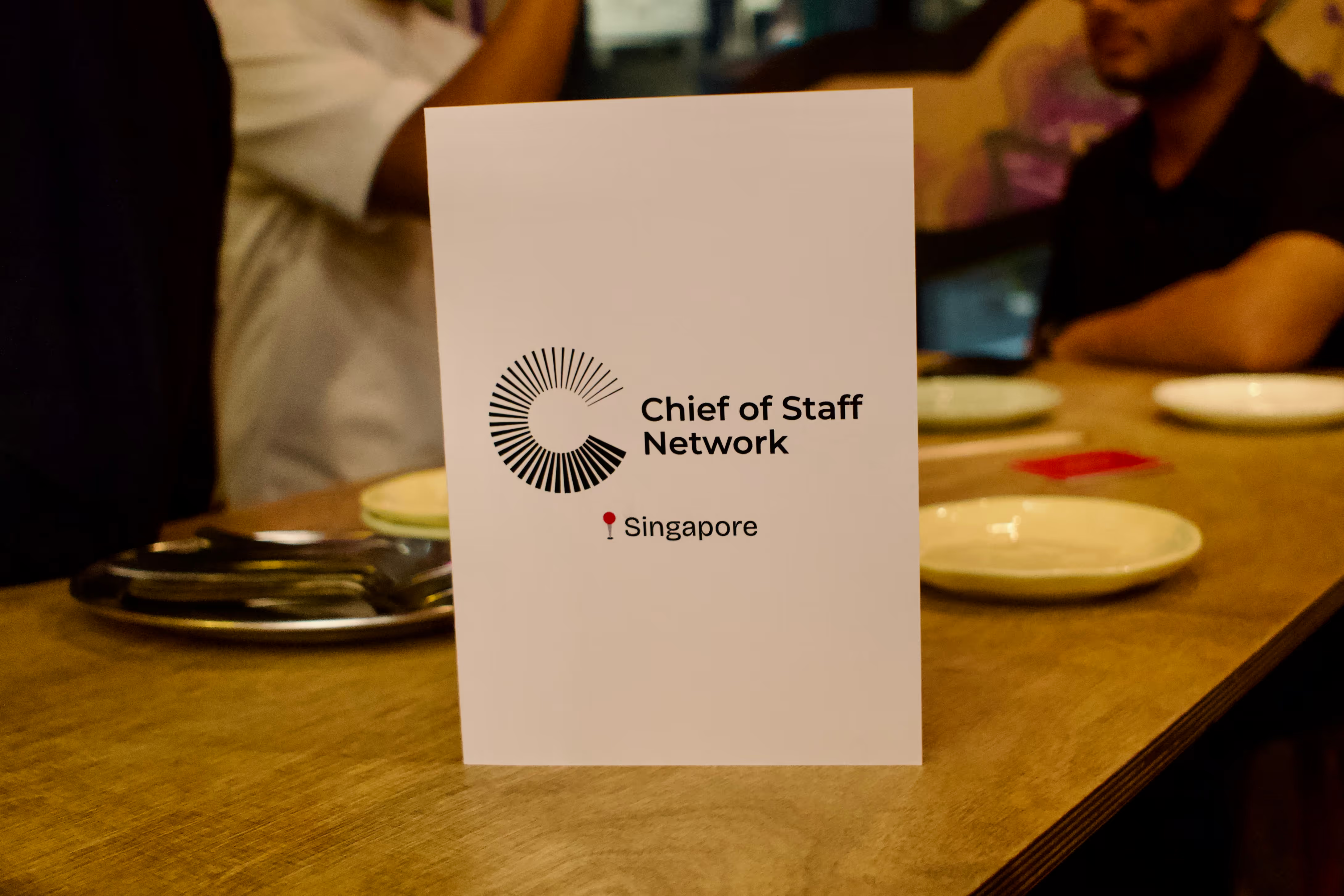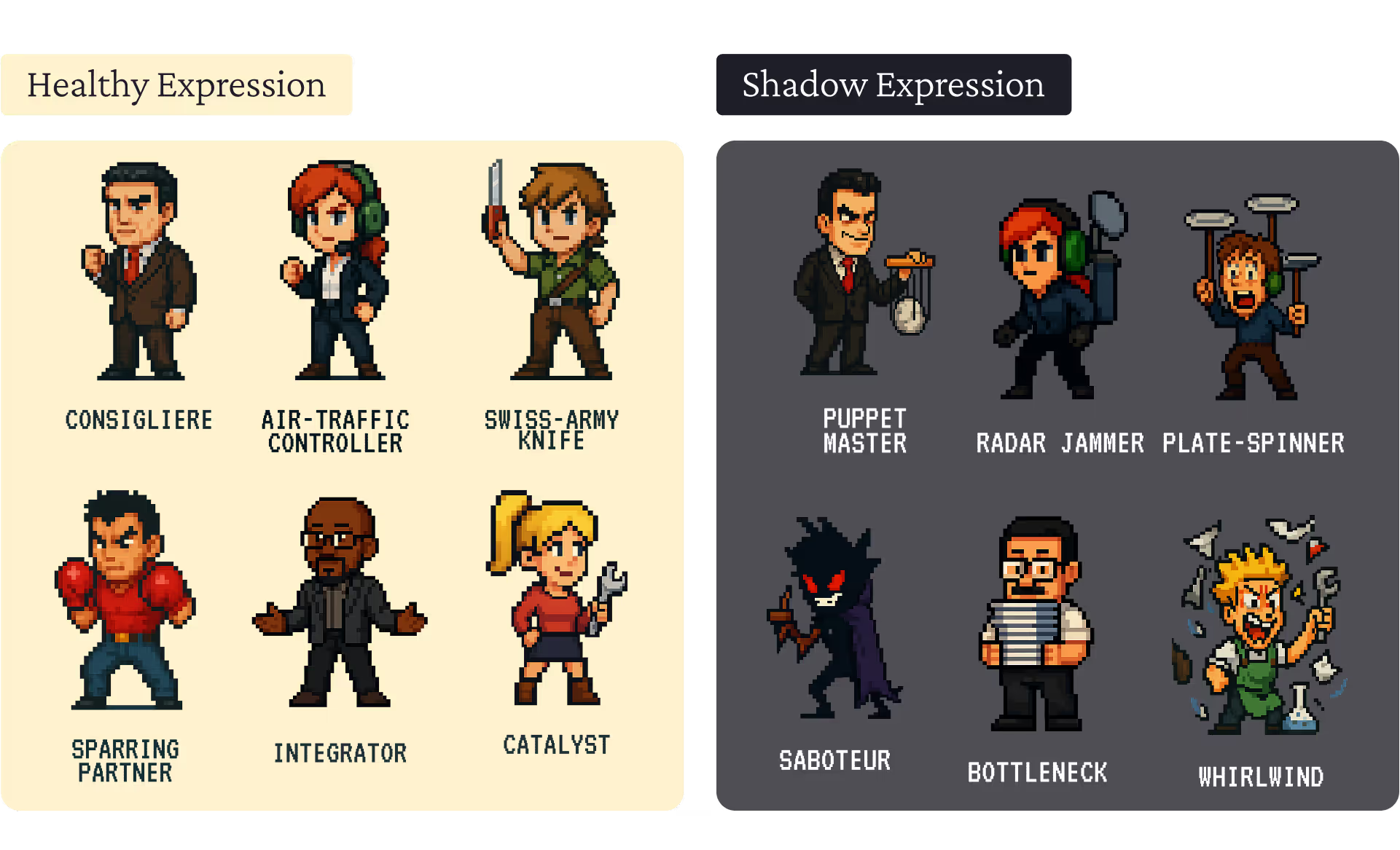Chief of Staff Job Description Checklist
We’ve written before about what executives should look for when hiring a Chief of Staff in our Executive Guide and how to craft the perfect Chief of Staff job description. But what about from the other side of the table?
For Chiefs of Staff evaluating opportunities, job descriptions often blur the line between strategic partner and operations-heavy generalist. To help you cut through that ambiguity, we built a simple Chief of Staff Job Description Checklist. Use it to quickly assess whether a role is strategic, well-defined, and aligned with your career goals and to catch red flags before you say yes.
Use it to quickly assess whether a role is strategic, well-defined, and aligned with your career goals and to catch red flags that may indicate misalignment.
Core Criteria
Score each item 1–5 depending on how clear the job description is.
- Strategic Focus
- Does the role emphasize strategic initiatives, decision-making support, and cross-functional leadership (vs. calendar management, travel, or admin tasks)?
- Does the role emphasize strategic initiatives, decision-making support, and cross-functional leadership (vs. calendar management, travel, or admin tasks)?
- Clear Responsibilities
- Are the deliverables and outcomes spelled out (e.g., “own OKR process,” “drive cross-team initiatives”) instead of vague “special projects as needed”?
- Are the deliverables and outcomes spelled out (e.g., “own OKR process,” “drive cross-team initiatives”) instead of vague “special projects as needed”?
- Principal Awareness & Archetype Fit
- Does the description give clues to how the Principal plans to use the CoS (advisor, operator, confidante)?
- Can you map this to a CoS Archetype (Consigliere, Catalyst, Air Traffic Controller, etc.)?
- Duration of Role
- Is the role explicitly time-bound (e.g., 18–24 months) or positioned as a long-term career role?
- Does that fit your ambitions?
- Level & Growth Path
- Is the seniority of the role clear (Manager vs. Director vs. VP-level)?
- Is there visibility into what comes next (e.g., succession into a leadership role, or an internal/external pathway)?
- Stakeholder Scope
- Does the role involve working only with the Principal, or does it include the exec team, board, and external stakeholders?
- Does the role involve working only with the Principal, or does it include the exec team, board, and external stakeholders?
- Organizational Context
- Does the JD explain why now (e.g., fundraise, transformation, scaling)?
- Stronger roles usually connect to a clear company mandate.
Red Flags
- Heavy emphasis on admin (calendar, expenses, travel).
- Overly vague (“catch-all,” “wear many hats,” “handle whatever comes up”).
- No mention of growth, development, or exposure.
- Signals of burnout culture (“must be available 24/7,” “thrive in chaos”).
- CEO language that suggests “dumping ground” (“do whatever I don’t have time for”).
✅ If most boxes check out: This is likely a strategic, well-defined CoS role that will set you up for growth.
❌ If several red flags appear: Think twice, it may be a mislabeled EA role or a dead-end “everything bagel” position.






.avif)
.avif)








